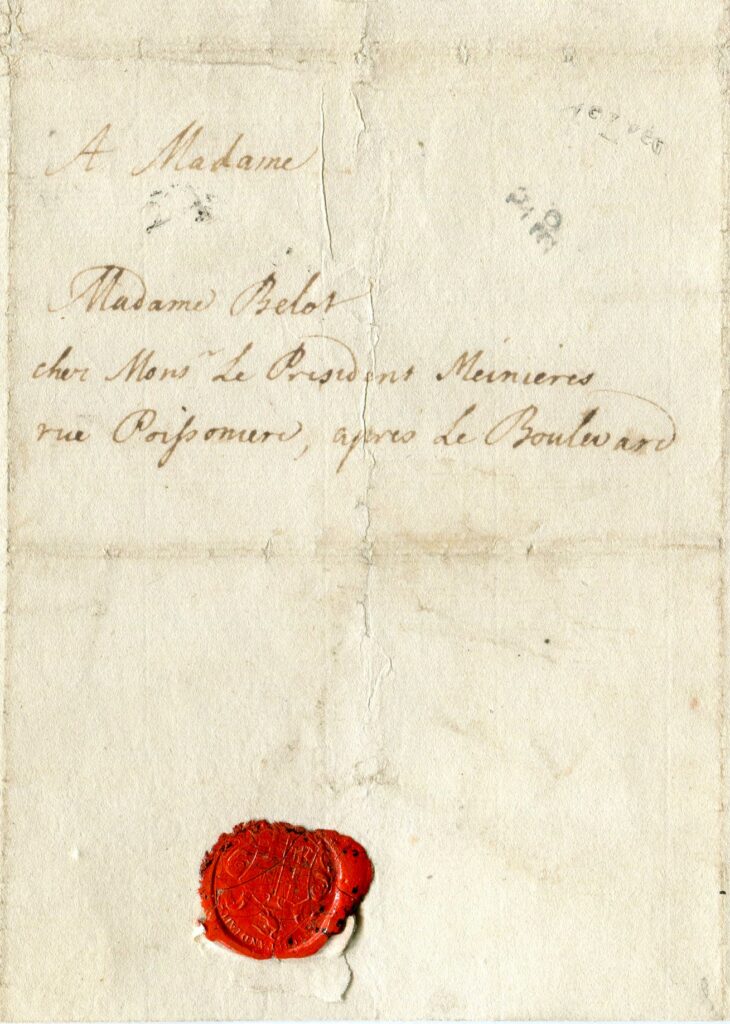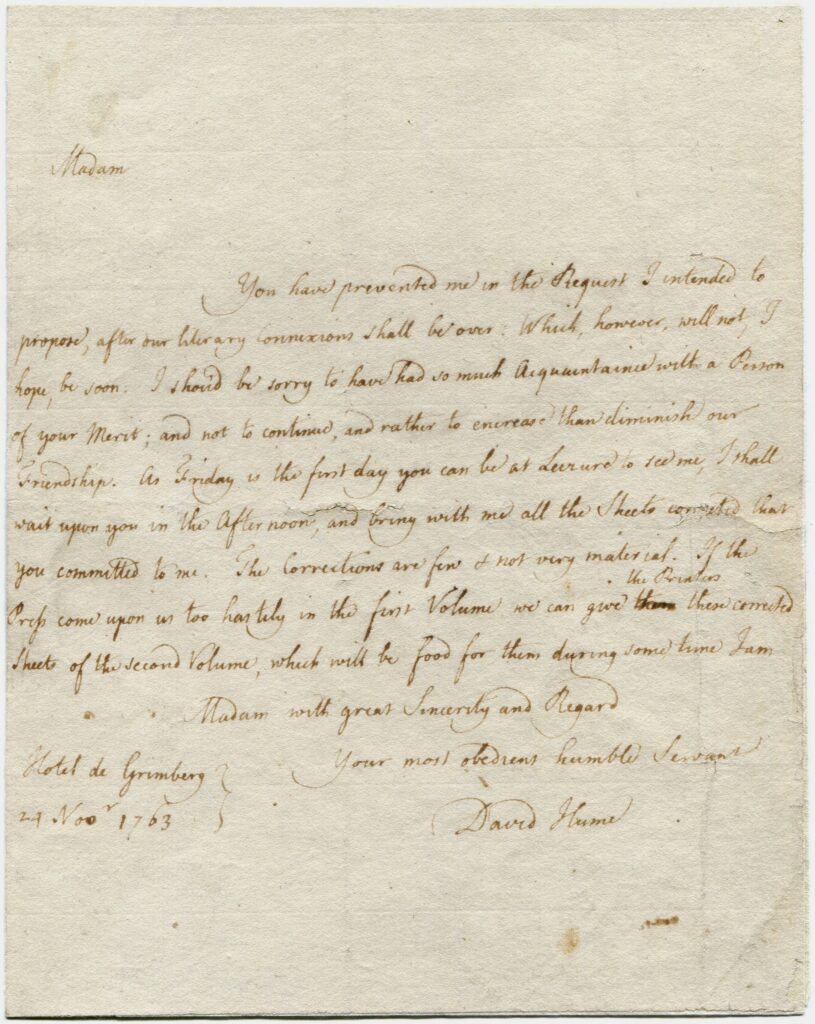This letter, full of substance, appears to have been discovered relatively recently since it was not included in Greg’s edition of Hume’s Letters nor in Klibansky and Mosner’s New Letters. It has, howver, been included in the recent Waldmann’s Further Hume Letters, Edinburgh Bibliographical Society, 2014, being Letter 22 on pp 53-54. Hume addresses the letter “Madame Belot c/o Président Jean-Baptiste François Durey de Meinières, rue Poissoniers après le Boulevard”. Meiniѐres (1705–1785) was an influential member of the Parlement de Paris, who became Octavie Belot’s second husband two years later.
Hume’s letter to Madame Belot discusses her first French translation of ‘The History of England under the House of Tudor’ just prior to its date of publication, and reveals the friendship between them and the deep respect Hume had for Octavie Belot as a translator.
The body of the text reads: “You have prevented me in the Request I intended to propose, after our literary Connexions shall be over; Which, however, will not, I hope, be soon; I should be sorry to have had so much Acquaintance with a Person of your Merit; and not to continue, and rather to increase than diminish our Friendship. As Friday is the first day you can be at Leisure to see me, I shall wait upon you in the Afternoon, and bring with me all the Sheets corrected that you committed to me. The Corrections are few & not very material. If the Press come upon us too hastily in the first Volume, we can give the Printers these corrected Sheets of the second Volume, which will be food for them during some time”
Antoine François Prévost was the first to undertake the French translation of Hume’s historical works, but he died after completing only the House of Stuart section, which appeared in three quarto volumes in 1760. The baton then passed to Madame Octavie Belot (née Guichard), who brought out translations of the Tudor and Plantagenet sections in 1763 and 1765 respectively. While Madame Belot’s translation work has been criticised as incompetent, it is evident from this letter that Hume thought well of it. Only a week after writing the present letter, he wrote to William Robertson recommending her as a translator for his ‘History of the Reign of Charles V’: “she has a very easy natural style: sometimes she mistakes the sense; but I now correct her manuscript; and should be happy to render you the same service .” (1st Dec 1763, Letters of David Hume, J.Y.T. Greig, 2011 edition, Vol. 1, pp. 415-16). Hume addresses the letter c/o Président Jean-Baptiste François Durey de Meinières (1705–1785), influential member of the Parlement de Paris, who became Octavie Belot’s second husband two years later.


